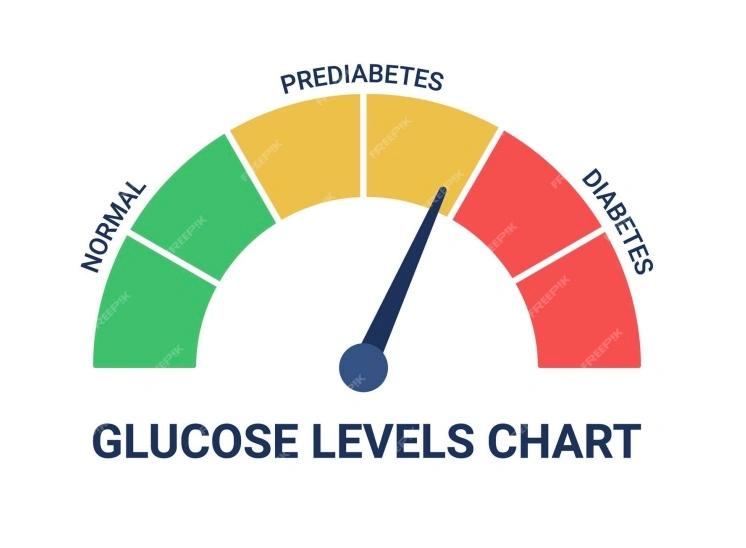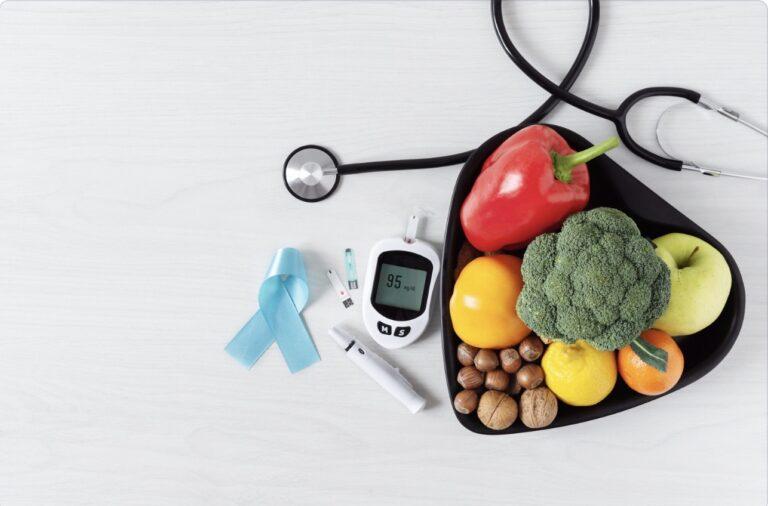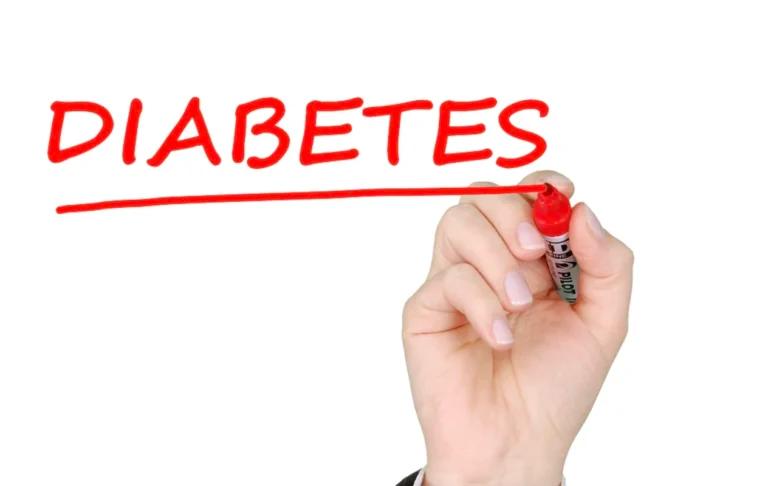Like most people, you probably think that the only sign of being diabetic is having high blood sugar levels. There are a lot of other warning signs that indicate you might have diabetes. In this blog post we’ll discuss some of the first signs of diabetes so that if you do have them, you can get them checked out and start feeling better sooner. Keep reading to learn more!
What is Diabetes?
In simple terms, diabetes or diabetes mellitus is excessive glucose in your body shown by a blood test. In other words, you have too much sugar in your blood. Your body can not process sugar the way it needs to when you have diabetes. The unprocessed sugar passes through your system in your urine. Sugar is a carbohydrate, one of the three sources of energy in the body. When sugar levels in the blood are not within safe limits signs and symptoms of diabetes show up.
Type 1 diabetes
Type 1 diabetes tends to come on in the early stages of life, such as childhood, adolescence or occasionally early adulthood. In type 1 diabetes the symptoms come on dramatically. If a blood test was carried out on someone with type 1 diabetes a few weeks before they developed symptoms the results would be completely normal. In other words, as far as type 1 diabetes is concerned there is no stage between normal and diabetes otherwise known as prediabetes.
What causes type 1 diabetes?
Type 1 diabetes is an autoimmune disease caused by problems with the immune system. The body attacks and destroys the cells that produce insulin by producing antibodies against cells in your pancreas. Without insulin, our bodies cannot use the sugar in the bloodstream as energy, causing people to experience diabetic ketoacidosis (DKA) or life-threatening complications.
Type 2 diabetes
Type 2 diabetes takes a long time to develop in comparison to type 1 diabetes. There is a stage between having completely normal blood glucose levels and high glucose levels this is known as pre-diabetes. Many people go through years of prediabetes before a diagnosis of type 2 diabetes is made.
Once you have prediabetes you are at higher risk of developing type 2 diabetes. Fortunately, by making positive lifestyle changes you can delay or possibly prevent that advancement. If there is a family history of type 2 diabetes then you are more likely to develop it. The early symptoms and warning signs of pre-diabetes give you a window of opportunity to do something about your risks and maybe even prevent yourself from progressing to a diagnosis of type 2 diabetes.
What causes type 2 diabetes?
Family history and genetic inheritance cause type 2 diabetes but other risk factors that increase diabetes risk are lack of physical activity, high blood pressure, elevated cholesterol levels, and heart disease.
The pancreas produces the hormone insulin that converts glucose from the food you eat into energy the body uses. In people with type 2 diabetes, the body may not produce enough insulin, or your cells become insulin resistant. People with type 2 diabetes have insulin in their bodies but their bodies respond to insulin abnormally.
Early signs and common symptoms of type 1 diabetes
Frequent urination
A large amount of glucose in your urine makes the urine so concentrated that water is drawn out of the blood and into the urine to reduce the concentration of glucose in the urine. This fills up the bladder repeatedly.
Increased hunger
You notice you’re increasingly hungry. Your body has plenty of extra glucose in the blood but your hunger results from your cells becoming malnourished because you lack the insulin required to allow the glucose to enter your cells.
Increased thirst
Your thirst increases because you lose so much water in your frequent urination that your body begins to dehydrate.
Weakness
You feel weak because your muscle cells and other tissues don’t get enough energy that they require from glucose.
Weight loss
Weight loss is common among some people with diabetes because they lack or can’t respond to insulin. When insulin is lacking for any reason the body begins to break down. You lose muscle tissue. Some of the muscle converts into glucose even though it can’t get into cells. It passes out of your body in the urine. Fat tissue breaks down into small fat particles that can provide an alternate energy source. As your body breaks down and you lose glucose in the urine, you often experience weight loss.
Early signs and symptoms of type 2 diabetes
Frequent urination and thirst
The glucose in your urine draws more water out of your blood, so more urine forms. More urine in your bladder makes you feel the need to urinate more frequently during the day and to get up at night to empty the bladder, which keeps filling up. As the amount of water in your blood declines, you feel thirsty and drink more frequently.
Blurred vision
The lenses of your eyes swell and shrink as your blood glucose levels rise and fall. Blurry vision occurs because your eyes can’t adjust quickly enough to these changes in the lens. Diabetes can damage the blood vessels of the eye (diabetic retinopathy).
Fatigue
Type 2 diabetes makes you tired because your body’s cells aren’t getting the glucose fuel that they need.
Vaginal yeast infection among women
Yeast infections thrive in a high glucose environment. As the blood glucose rises all the fluids in your body contain higher levels of glucose including sweat and body secretions such as semen in men and vaginal secretions in women. Women begin to complain of itching or burning, an abnormal discharge from the vagina and sometimes an odour.
Cuts and sores that are slow healing and urinary tract infections
Your white blood cells which help with healing and defend your body against infections do not function correctly in the high glucose environment present in your body when it has diabetes. Unfortunately, the bugs that cause infections thrive in the same high glucose environment.
Obesity
If you’re obese you’re more likely to develop diabetes than if you were at a healthy weight.
Feet or leg numbness
Numbness is experienced because of long-term diabetes complications called nerve damage or diabetic neuropathy. If you notice numbness along with other symptoms of diabetes you’ve probably had the disease for a while because neuropathy takes a while to develop.
Gestational diabetes
Gestational diabetes is another type of diabetes that occurs during pregnancy. It is condition that can develop when you are pregnant and you have never had diabetes before. This happens because the growing foetus and the placenta create various hormones to help the foetus grow and develop properly. Some of these hormones have characteristics that reduce your body’s sensitivity to insulin, therefore increasing glucose production and causing diabetes.
Women with gestational diabetes often have no symptoms, which is why it’s important to be tested at the proper time during pregnancy with a blood sugar test. Subtle signs and symptoms of gestational diabetes are similar to type 2 diabetes such as increased thirst, fatigue and dry mouth.
As you’ve probably realised already, diabetes is a highly complicated condition with lots of risk factors and body processes at play. Always speak to your doctor or another healthcare provider if you experience any signs and symptoms of diabetes.
If you’re concerned about any symptoms you or a loved one is experiencing, be sure to speak to your healthcare professional for advice. If left untreated, diabetes can lead to serious health problems like kidney disease and blindness. Early diagnosis and treatment are essential for diabetes care and for preventing serious health problems.
Sources
- Risk factors – CDC
- Diabetes – NHS
Medical Disclaimer
NowPatient has taken all reasonable steps to ensure that all material is factually accurate, complete, and current. However, the knowledge and experience of a qualified healthcare professional should always be sought after instead of using the information on this page. Before taking any drug, you should always speak to your doctor or another qualified healthcare provider.
The information provided here about medications is subject to change and is not meant to include all uses, precautions, warnings, directions, drug interactions, allergic reactions, or negative effects. The absence of warnings or other information for a particular medication does not imply that the medication or medication combination is appropriate for all patients or for all possible purposes.













